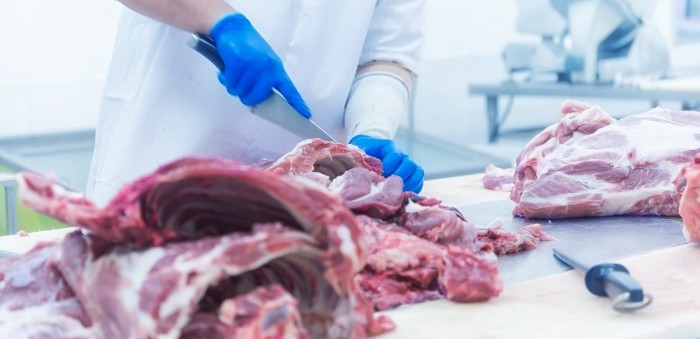A ‘meat tax’ would cost the UK £242 million a year according to a new study from agricultural research institute Rothamsted Research, suggesting that a tax on red meat to help curb climate change could do more harm than good.
The new study, published in Scientific Reports, modelled economy-wide impacts of meat tax for the first time and estimated that, even under moderate tax rates previously proposed for the UK (19% for meat and 11% for dairy), the country’s economic losses would amount to £242M per year.
The findings also said that these losses resulted from transfer of land and labour forces from livestock farms to arable farms and non-agricultural industries.
Dr Taro Takahashi, the agricultural economist who led the research said whilst a red meat tax would ‘ambiguously’ reduce greenhouse gas emissions, the economic losses will not only be borne by livestock farmers, but everyone in society.
“As well as impacting consumers and farmers, the knock-on effects will be felt right along supply chains as well as rural communities that support and are supported by farmers,” said Dr Takahashi.
“Politically Impossible”
The recent National Food Strategy (NFS) report, which called for a 30% reduction in meat consumption, said a meat tax would be “politically impossible”.
The NFS report noted that whilst UK sheep and cattle are typically reared on grass, poultry and pigs are predominantly fed on cereals that could instead be eaten by humans – and with limited space available for agriculture, growing food for farm animals rather than people is often seen as an inefficient use of land.
Dr Takahashi noted that the Rothamstead study found that a meat tax could force grazing livestock farms out of the industry – even when grassland is actually the most sensible land use at a particular location.
Takahashi suggested rather than a blanket tax, a better solution would be to look at which areas of the country are best kept as cattle and sheep farms, and which would be better turned to other uses such as crop production for human consumption, agroforestry, and provision of ecosystem services.
“This would involve a more nuanced approach of weighing up the carbon savings against the amount of nutrients produced and the impacts on the economy, both locally and nationally,” he said.
The proposal
Under the proposed meat tax, climate change causing emissions were predicted to decrease by 2.5 Mt CO2 equivalent per year – equating to a monetised social benefit of £101M per annum under the same carbon price (£41/t CO2 equivalent) used to derive the assumed tax rates.
Advocates of a meat tax have argued that economic models predict a significant reduction in greenhouse gas emissions as a result of taxation.
“However, many of these analyses do not consider wider effects of taxation beyond red meat and dairy markets, and as such the macroeconomic impacts associated with a shrinkage in the livestock industry were mostly unknown before this study,” said Dr Takahashi.
Professor Michael Lee, Deputy Vice-Chancellor of Harper Adams University who co-authored the paper while at Rothamsted added: “Our study also shows the vital role responsible consumption of ruminant livestock products can play within a sustainable food system under the UK’s grassland dominated landscape.
“Ruminant livestock are the most efficient provider of key nutrients for human health from land not suitable for growing crops. The study highlights that even with reduced protein consumption levels as advocated in the National Food Strategy, ruminants, given our landscape, should continue to supply high-quality protein from grasslands. This way, more fertile lands can be freed up for provision of fibre and vitamins through vegetables and fruits.”
Grassland
The next step for the research team is to identify when exactly grassland should remain grassland for sustainable food production, a task Dr Takahashi describes as “critical” for the future of UK agriculture.
“Given that we currently consume more livestock products than nutritionally recommended, it is perhaps socially suboptimal to maintain all of today’s grasslands for grazing purposes. The question, then, is under what soil, local climate and other geographical conditions are they desirable to society?
“We absolutely need to answer this question before telling a specific farmer to stop rearing livestock, because otherwise some unintended consequences are very likely.”




